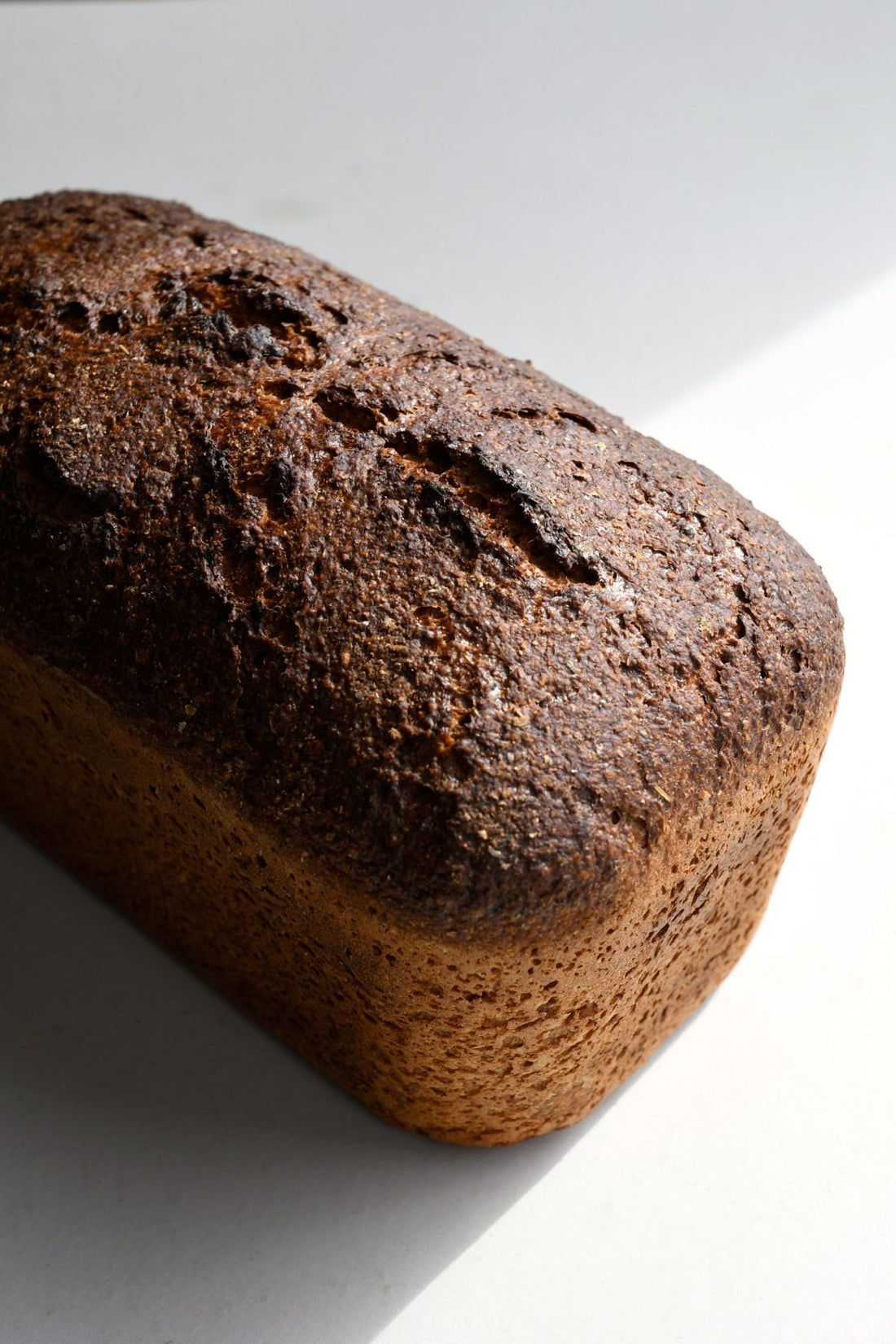100% Wholemeal Sourdough with Heritage Grains

If you haven’t tried baking a wholemeal sourdough before, our head baker Chris’s recipe is a great introduction to it, and is easy to adapt to various types of wholemeal flour depending on what is available each harvest. The tin shape removes some of the pressure of shaping.
He’s using our Lammas Fayre wholemeal here, but our stoneground organic wholemeal flour with some Maris Widgeon would be fantastic for this also
You get a denser crumb and plenty of flavour. Particularly delicious with some comte and a boiled egg to start the day.
VIDEO: Shipton Mill (@shiptonmill) • Instagram photos and videos
RECIPE: 100% Wholemeal Sourdough with Heritage Grains
Makes 1 tin loaf, approximately 1.80kg weight. You will need a 3lb loaf tin.
Chris’s recipe uses a scalding technique on a small percentage of the flour, which contributes to softness of crumb and longevity of shelf life.
Because it is a 100% wholemeal loaf it is full of honeyed notes flavour from the bran, and has a denser texture from it.
We currently use our heritage grain wholemeal flour for this bread. Our organic stoneground wholemeal which includes Maris Widgeon also makes a great loaf with this recipe.
The heritage grain’s gluten is more delicate than some modern wheat varieties, so make sure your starter is nice and fresh and not too acidic when you come to bake. A very acidic starter will start to break the gluten structure down too early.
INGREDIENTS
- 250g boiling water
- 1000g wholemeal flour
- 150g sourdough starter
- 550g warm water
- 20g salt
METHOD
Mix 50g of flour for the scald together with the 250g of boiling water, and whisk well. Leave for 15 minutes to cool slightly.
Mix the starter, remaining 950g of flour, the 550g water and the scald mix together until the ingredients are well incorporated. Cover and leave for 30 minutes to autolyse.
Next, add the salt and work this well into the dough. Cover, and leave for 2.5-4 hours, folding the dough every hour. Be gentle when folding as you don’t want to tear the dough too much.
Sometimes heritage grain flours can ferment very quickly so if the dough is feeling lively at the second fold check it after 30-45 minutes, as it might be ready. In cold weather however it might take up to four hours, with folds at hours 1,2 and 3. Keep an eye on the dough and read how it is developing depending on the temperature around you.
Once ready, dust the top of the dough and then tip it out on to a lightly floured work surface.
Shape the dough to fit your tin, then place it into a lightly greased tin (3 lbs) and leave out for 30 minutes, before placing in the fridge overnight.
The next morning take your tin out of the fridge and preheat the oven to 250°C for at least 30 minutes.
Place your tin in the oven and steam well by spraying in some water on the bottom of the oven. Reduce the temperature to 230°C, and bake for 20 minutes.
Reduce the temperature to 210°C and bake for at least another 20 minutes, longer if you want a darker crust.
Place on a wire rack to cool.



